World
Out in the World: LGBTQ news from Europe and Asia
Qatar has detained a man with HIV who is a dual British and Mexican citizen

AUSTRALIA

As the 46th Sydney Gay and Lesbian Mardi Gras ended its two week long celebrations with the annual massive Mardi Gras parade on Oxford Street this past weekend, this year’s celebration marred by the murder of a gay couple that jarred the country’s entire LGBTQ community, the parade came to a halt on Saturday in a powerful act of remembrance for the couple, Jesse Baird and Luke Davies.
In its annual float, Qantas Airways paid tribute to Davies who worked for the carrier as a flight attendant. A Qantas spokesperson confirmed that Davies’ name was added prominently on the side of the Qantas float, and Executive Manager Crew Leeanne Langridge in a statement said that Davies “was a much-loved member of the Qantas cabin crew community in Brisbane and Sydney.
“He had a passion for travel, life, his family and friends and the customers that he served. He will be deeply missed. The whole team at Qantas are thinking of Luke and Jesse’s loved ones,” Lanridge said.
The Star Observer, the country’s largest queer news media outlet, reported that a New South Wales police officer, Beaumont Lamarre-Condon, who reportedly once dated Baird, a Network 10 reporter and a sports official who umpired in AFL matches in the Northern Football and Netball League, has been charged with their murders.
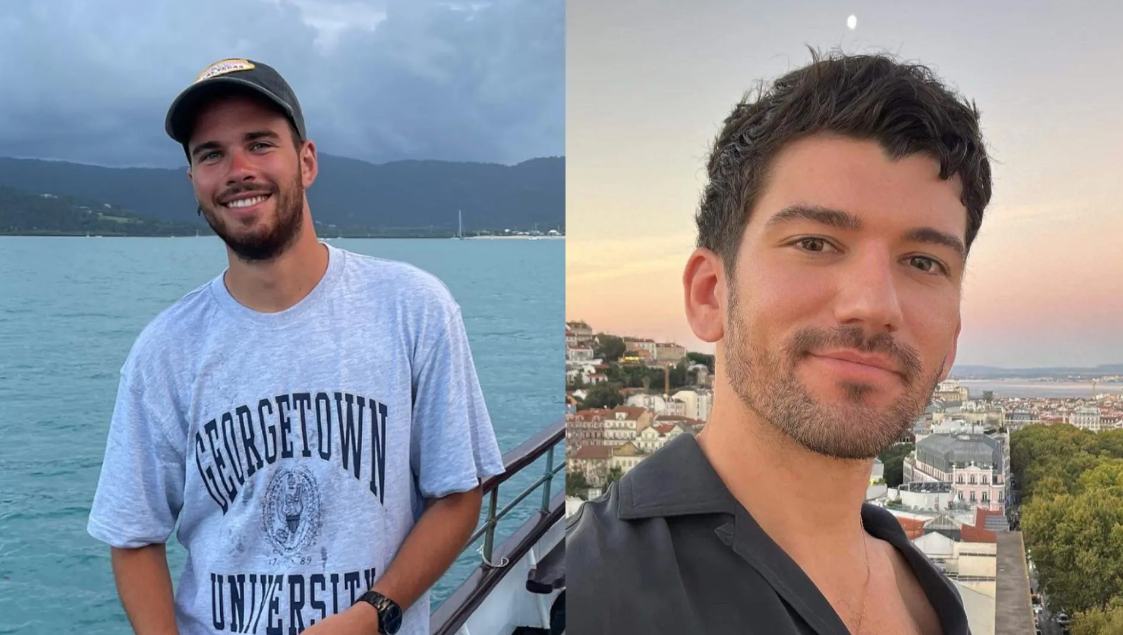
Lamarre-Condon is accused of shooting them dead with his police-issued sidearm at Baird’s home in Paddington, Sydney. The couple’s remains were found at a property at Bungonia, near Goulburn, around 115 miles south of Sydney on Feb. 27, 2024.
The murder of the couple caused the Sydney Gay and Lesbian Mardi Gras organizers to uninvite police from the iconic Mardi Gras parade the BBC reported.
The parade’s board said the decision to exclude police, who have taken part in the annual march for over two decades, was “not taken lightly” but that it was essential to create a safe environment “to protest, celebrate” and “honor and grieve those we’ve lost.”
Sydney’s Mardi Gras parade has a complex history of both LGBTQ activism and police brutality, after the first march in 1978 resulted in dozens of people being beaten and arrested by local officers, the BBC noted.
CHINA
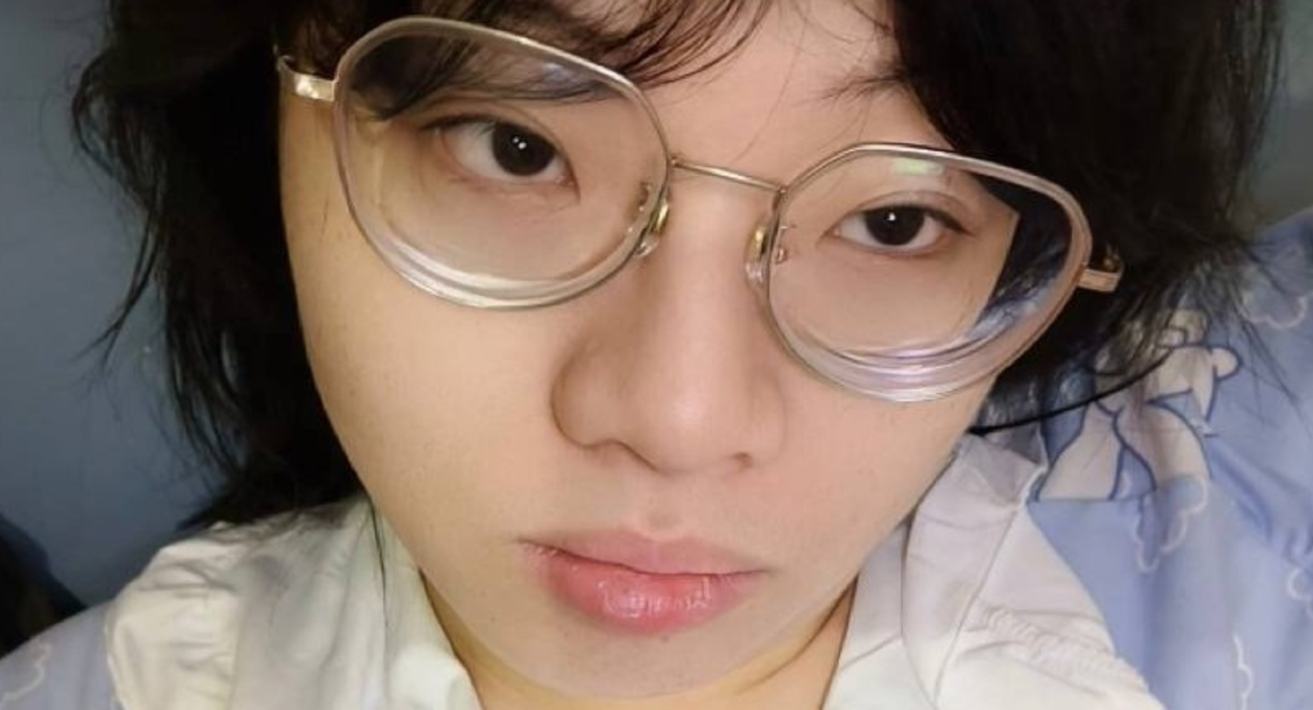
A Chinese transgender activist is facing deportation back to mainland China as she is scheduled for release on Sunday from Siu Lam Psychiatric Center, a psychiatric detention institution where Hong Kong authorities usually hold trans detainees.
Lai Ke, also known as Xiran, was convicted of using “forged” documents to attempt to travel from China to Toronto via Hong Kong last year. Lai was detained at Hong Kong International Airport on May 3, 2023, while transferring to a flight to Toronto having begun her journey in Shanghai.
Lai was convicted in a Hong Kong court on June 16, 2023, and sentenced to 15 months in prison, which she served at the Siu Lam Psychiatric Center. A release notice from the Siu Lam Psychiatric Center seen by Amnesty International states that Lai is due to be released early for good behavior on March 2. As Lai is not a resident of Hong Kong, she is subject to being deported to mainland China under Section 19 of the Hong Kong Immigration Ordinance.
“Time is of the essence to prevent Lai Ke from being unlawfully deported to mainland China, where she would be at grave risk of serious human rights violations — including arbitrary detention, unfair trial, and even torture and other ill-treatment — due to both her transgender identity and her activism,” Sarah Brooks, the deputy regional director for Asia for Amnesty International said.
“To return her given these risks would be an abandonment of Hong Kong’s obligations under international law.”
Lai had been a vocal advocate for trans rights in China alongside her partner. According to her friends, her partner was imprisoned in China in June 2023 on account of her own activism and her trans identity.
While serving her sentence, Lai has been denied access to the medication she was taking as a part of her hormone replacement therapy and held in solitary confinement for complaining about the denial of her medical treatment, her friends added.
“There is a very real risk that Lai Ke will face persecution — including further imprisonment — if she is returned to mainland China,” said Brooks.
PHILIPPINES
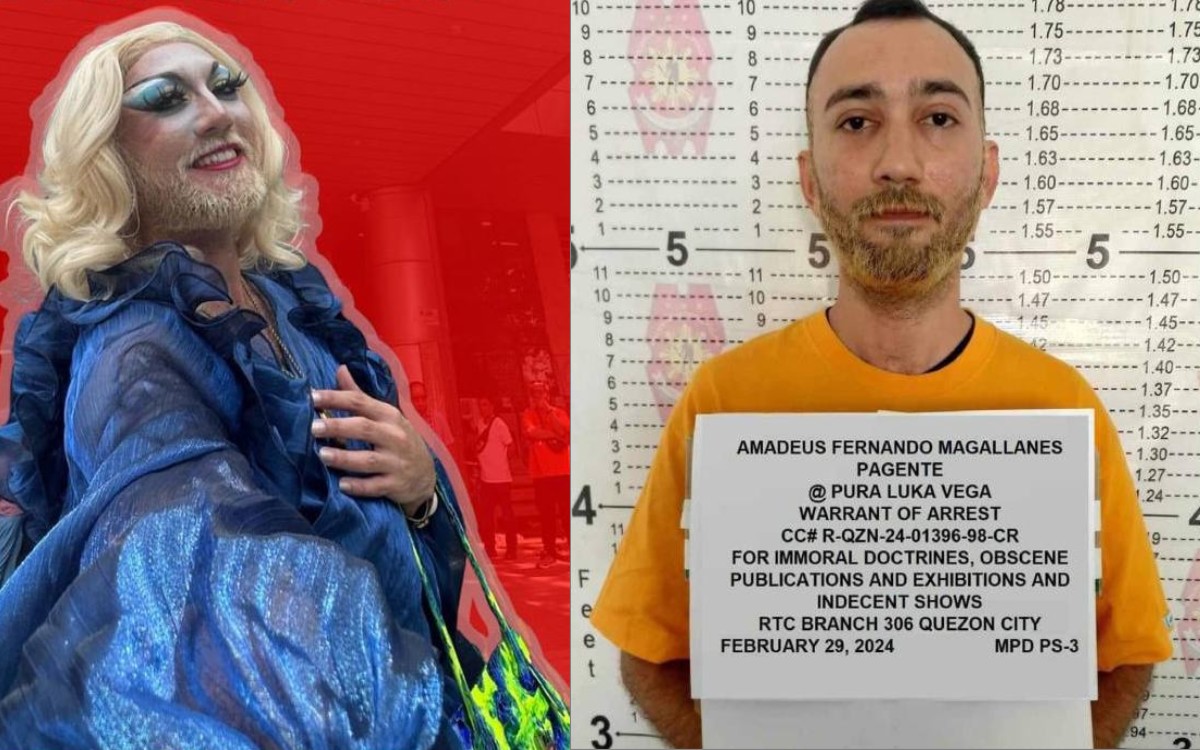
A 33-year-old drag queen who had been incarcerated in a Manila jail last fall for allegedly violating the Catholic-majority country’s obscenity laws for his performance dressed as Jesus Christ, performing a rock version of the Lord’s Prayer in Tagalog, was arrested again this past week.
Investigators from the Manila Police District, charged Amadeus Fernando Pagente, who performs under the stage/drag name Pura Luka Vega, for six counts of alleged violation of Article 201 including immoral doctrines, obscene publications and exhibitions and indecent shows. The arrest of the drag artist on Feb. 29 was due to a warrant issued by a court in Quezon City.
Supporters and fans raised the bail of 720,000 Philippine pesos, ($12,852.55) and Pagente was released on March 1. In a post on X, formerly Twitter, the drag artist thanked his benefactors writing: “The fight still goes on, life still goes on. I am very grateful to those who helped me with my bail. To my drag sisters who tirelessly helped me and organized fund raising for legal fees, thank you very much. Thank you.”
These latest charges stem from a complaint issued by the Kapisanan ng Social Media Broadcasters ng Pilipinas, a broadcast media organization, on behalf of Philippines for Jesus Movement.
This is the second time the Philippines for Jesus Movement, comprising Protestant church leaders, has registered a criminal complaint with prosecutors against the drag performer. He was accused of violating obscenity laws for his performance dressed as Jesus Christ, performing a rock version of the Lord’s Prayer in Tagalog last August. He was incarcerated and then later released.
At the time Pagente told Agence France-Presse: “The arrest shows the degree of homophobia” in the Philippines. “I understand that people call my performance blasphemous, offensive or regrettable. However, they shouldn’t tell me how I practice my faith or how I do my drag.”
Ryan Thoreson, a specialist at the Human Rights Watch’s LGBT rights program, also called for the charges against Pagente to be dropped. “Freedom of expression includes artistic expression that offends, satirizes or challenges religious beliefs,” Thoreson told the BBC.
UKRAINE
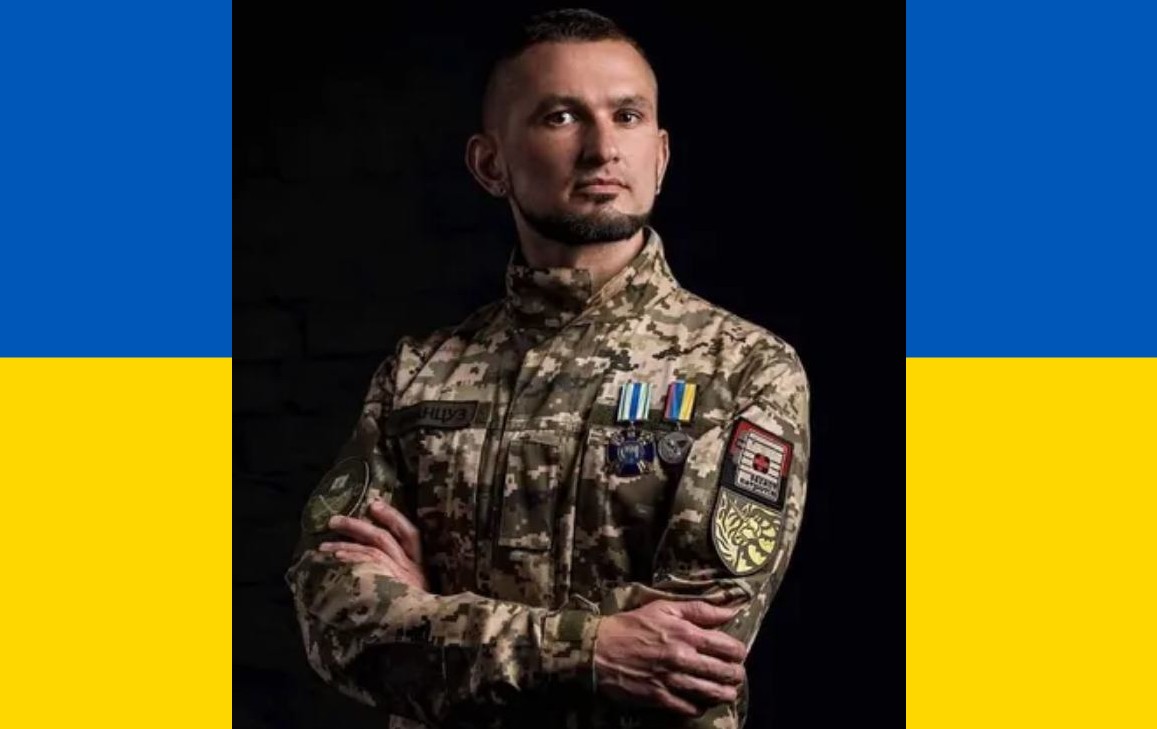
A Ukrainian army combat medic was stripped of honors awarded to his unit by the Ukrainian Orthodox Church after the church leadership was informed that he was gay.
Viktor Pylypenko, a medic with 1st mechanized battalion, 72nd Black Zaporozhians Brigade medical corps, along with his fellow servicemembers were awarded medals for “sacrifice and love to Ukraine” by the Ukrainian Orthodox Church of the Kyiv Patriarchate’s Patriarch Filaret for their actions and deeds serving in the Donbas region against the Russian invaders.
Pylypenko who serves as an openly gay soldier together with the commander of the medical corps, Yurii Lytvynenko, arrived from Donbas to receive the medals from Filaret. The patriarch personally thanked Pylypenko for his service.
According to the Ukrainian news website obozrevatel.com, that after receiving the award, the soldier published a post on his Facebook page thanking Filaret for the award, thinking that in this way the UOC changed its attitude towards the LGBTQ community.
“I am sincerely glad that Patriarch Filaret took such a step and thanked me, an openly gay man and human rights activist, for the protection. He gave me a medal with his signature and seal. He and the Kyiv Patriarchate headed by him have radically changed their position on LGBTQ+ people and no longer consider us ‘sinful’ or the cause of the coronavirus,” Pylypenko wrote.
On Feb. 25 the church responded in its own Facebook post calling Pylypenko’s post a falsehood:
“Among the distinguished military personnel of the medical point was Victor Pylypenko. Unfortunately, on his social media pages, he posted false information about Patriarch Filaret awarding him a distinction as openly gay for human rights and that Patriarch Filaret and the Kyiv Patriarchate radically changed their negative position on LGBT.
This is an outright lie and manipulation.
Taking into account the efforts of the dark forces to distort the consistent position of the upc of the Kyiv Patriarchate, we want to officially state:
1. Soldier Victor Pilipenko received a thank you from the church, exclusively as a defender of Ukraine, not as an LGBT activist, at the submission of his fellow soldiers from the combat unit of the heroic 72nd Brigade of the Black Zaporozhye. Patriarch Filaret did not personally award the Pilipenkoví medal and did not know about his sinful tendencies.
2. Holy Patriarch Filaret and the Ukrainian Orthodox Church of the Kyiv Patriarchate, based on the foundations of the Holy Scriptures, the thousand-year teaching of the Orthodox Church, invariably occupies a principled negative position on Sodom sin, condemns propaganda t. zv ‘same-sex marriages.’ Homosexual sex relationships are a false distortion of the God-given nature of man. As said in the Bible, the Lord Himself for the sins of people destroyed Sodom and Homorrah. The patriarch repeatedly stated it publicly and in court proved the legality of such his right.
3. We thank warrior Victor Pilipenko (as well as all our defenders for defending our liberty and territorial integrity) for his military service, but we do not divide his sinful likeness and LGBT agitation. We inform that due to open propaganda of sinful ideology and the denial of the existence of God, consider the church award to Victor Pilipenko from 08.02.2024 Order no. 27468 — revoked.
The Apostle Paul in the first letter to the Corinthians warned: ‘he deceive yourself: Neither prostitutes, nor idolosuluzeliji, nor adulterous, nor malakí̈, nor mužoložcí, nor thieves, nor lehvari, nor drunkards, nor lihoslovci, nor predators — the kingdom of God will not inherit. And such were some of you; but washed, but sanctified, but justified in the name of our Lord Jesus Christ and by the Spirit of our God’ (1 Cor. 6, 9-11).
Based on the foundations of Christian evangelical love for all, sinners in particular, desiring them salvation, we urge everyone to repent of their personal sins.
Then the church’s press service said: “We would like to inform you that in view of the open propaganda of a sinful ideology and the denial of the existence of God, the church award to Viktor Pylypenko is hereby revoked.”
Pilipenko then accused the Kyiv Patriarchate of awarding the medals as a PR campaign:
“I wrote words of gratitude to Filaret, naively imagining that he deliberately awarded me and showed his colleagues a Christian, undoubtedly noble gesture, a signpost to reconciliation and mutual respect for gays, atheists, and people of other faiths. But everything turned out to be more prosaic: Filaret was just handing out his awards as a PR campaign for his denomination.”
Outrage from his fellow soldiers and others has been building regarding the Kyiv Patriarchate’s actions.
Ilia Krotenko, a fighter with the 72nd Black Zaporozhians Brigade, emphasized that the “trinkets” handed out by the church are worthless.
“In connection with the absolutely disgusting act of the UOC-Kyiv Patriarchate and Patriarch Filaret, who took away the award from war veteran Viktor Pylypenko only because he is openly gay, I also refuse a similar award of my own,” he wrote.
SLOVENIA
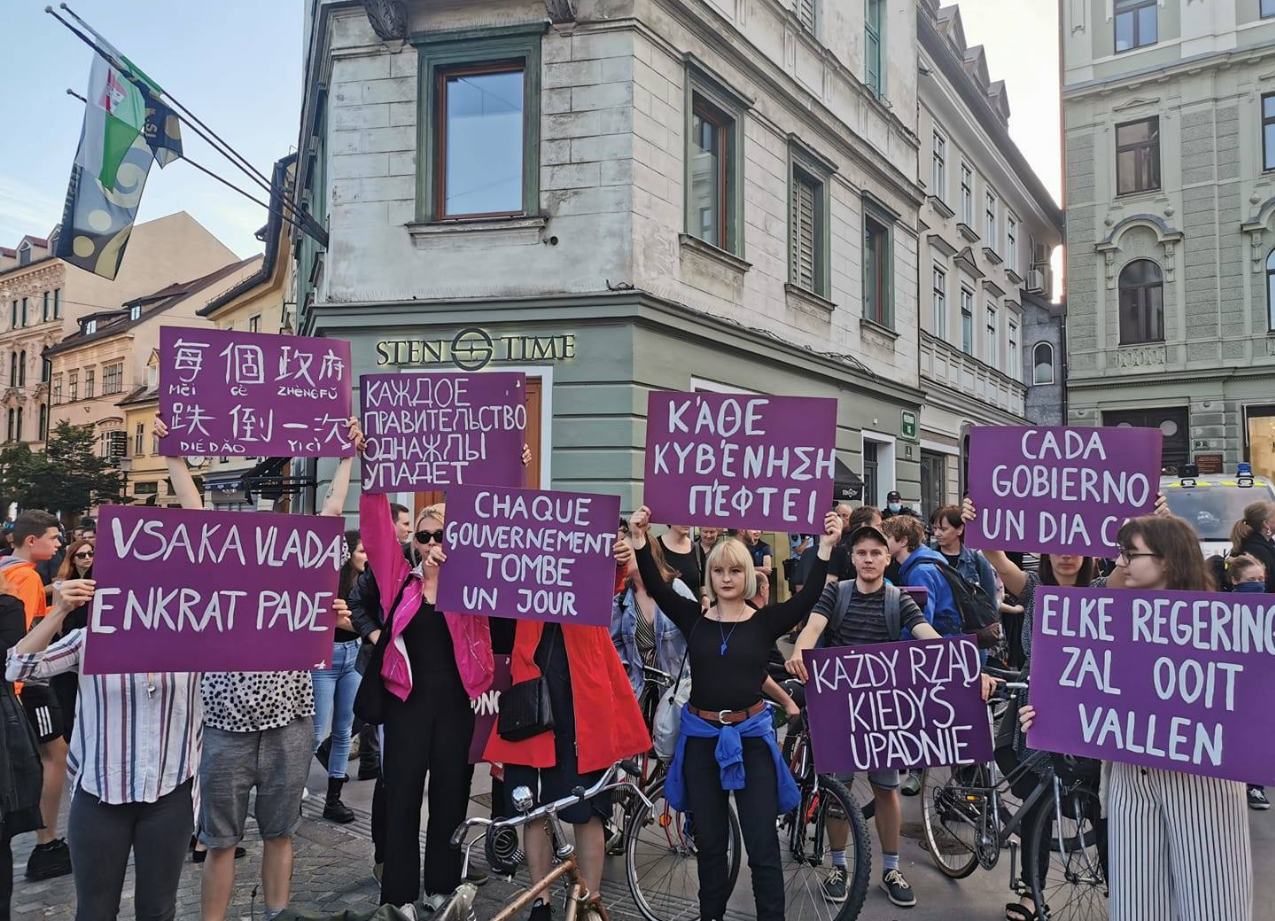
Activists from across Europe, including Slovenia, Spain, France and Poland formed an alliance to launch a petition to collect over 300,000 signatures as a first step towards laying the groundwork to ensure that in Europe, reproductive rights are safeguarded and accessible for each and every woman.
This event marks a pivotal moment where voices from diverse European nations unite to advocate for reproductive rights, underscoring the collective resolve to ensure the safety and accessibility of abortion services across the continent.
Nika Kovac, founding director of the 8th of March Research Institute, part of the new alliance, said, “The need to kick off the petition is driven by a deep concern over the erosion of reproductive rights, as witnessed in various parts of the world, including the United States and Poland. We are dedicated to creating a network of friends united by shared values of empathy and solidarity. The key to change is international solidarity.”
“The freedom to choose our body is a common value in every single country of Europe. We are here to demand that it also becomes a right that everyone has in practice,” she added.
Though a large majority of Europeans support abortion, the values of women’s bodily autonomy and their freedom to choose are not shared by all governments and state laws. In a significant number of EU countries, legal and access restrictions prove to be a considerable hurdle for those who need it the most. Slovenia has proven to be a significant outlier, being the only European country to enshrine the right to abortion in its constitution with France currently trying to do the same.
“Ban on abortion kills women, ban on abortion ruins lives and the lack of access to abortion kills women and ruins lives,” said Marta Lempart, founder of Polish Women’s Strike, who has been the loudest advocate for reproductive rights in the country.
“In my country, women die in state hospitals because they are denied abortions. Each time it happens, we cry and protest and say ‘not one more’ but today I am not here to cry and shout but to say that we can get through it. You will never walk alone.”
“In many countries, abortions are legal but not free, so, it’s only for rich people; Also, in many countries abortions are legal, but women are intimidated, and humiliated for accessing a health service. This should not be happening. We need solidarity as we need to protect women not only in Poland but across Europe.”
Alice Coffin, who leads permanent action against patriarchal structures that harm French society and is a member of the alliance, said, “While Poland is infamous for severely restricted access to abortion, populist far-right parties with the same agenda are emerging across the continent. Their anti-abortion agenda is rarely in the forefront of their public communication but it becomes an important policy point if they achieve power. However, there is widespread public opposition to these measures.”
She added, “The French Senate is due to vote on including abortion in its constitution on Wednesday, Feb. 28. The president of the Senate is opposed. The Vatican has expressed its anger. But we have every hope that it will come to pass. So, abortion is an issue that will be very much on the political and media agenda in France over the next few days.”
The petition will actively be distributed among various individuals across multiple countries to ensure wide reach and engagement with the aim of gathering an initial 300,000 signatures. With this petition, the coalition hopes to build momentum and support for the substantive changes they aim to achieve.
The initiative represents a powerful, united front of committed individuals and organizations, and was attended by prominent feminist activists including Nika Kovač who has been one of the initiators of the #MeToo movement in Slovenia; Lempart, activist, and founder of the Polish Women’s Strike, who has been the loudest advocate for reproductive rights in a country with an almost total ban on abortions and has organized the biggest pro reproductive rights protests in the history of Poland; Alice Coffin, renowned feminist and author from France; Silvia Casalino, activist from France, along with Dr. Imma Clarà, director of the Spanish organization L’Associació; LGBTQ activist and researcher Kika Fumero; feminist activist and journalist Cristina Fallarás who launched the Spanish #MeToo movement. #Cuéntalo (Spain) participated in the petition launch.
The coalition’s political stance stems from a fundamental disagreement with the reality that women in Europe still face life-threatening risks due to lack of access to safe abortion services.
The coalition’s overall goal is to safeguard and advance abortion rights across Europe, ensuring that all women have access to the safe, respectful and legal healthcare services they deserve.
QATAR
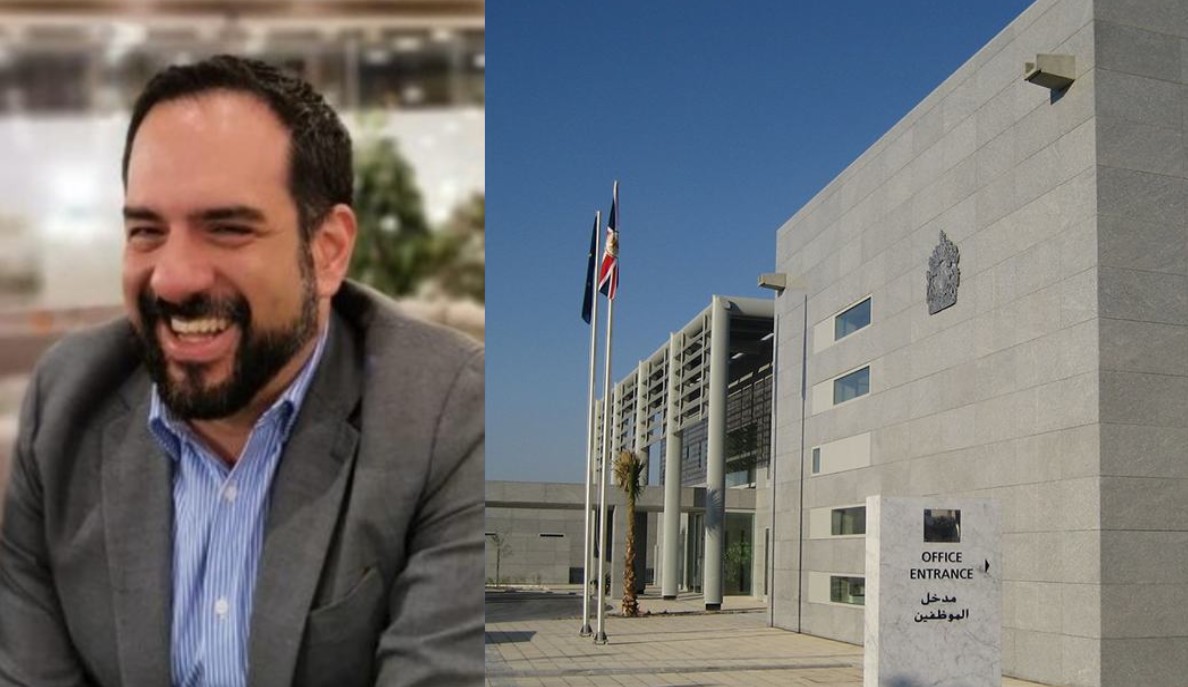
An HIV positive openly gay dual British and Mexican citizen is being held because of his sexuality in this peninsular Arab country bordering the Persian Gulf. Manuel Guerrero Aviña, 44-year-old Qatar Airways employee, has been imprisoned since Feb. 4 after responding to a false Grindr text.
PinkNewsUK reported according to his brother Enrique Aviña, who is leading the campaign QatarFreeManuel, his brother is being imprisoned because of his sexuality, and has been denied access to antiretroviral medicines.
“Qatar police used a false Grindr profile to contact Manuel and invite him to participate in a meeting with other people from the LGBT community in the city of Doha,” Enrique Aviña told British newspaper the Mirror.
“Manuel was supposed to meet a person he thought he had arranged an appointment with on the night of Feb. 4 but instead encountered police officers who were waiting to arrest him.”
“He has been denied the right to a lawyer and has been forced to sign documents in Arabic without a translator to assist him. Even worse, he has been prevented access to antiretroviral medicines he needs to be able to live with HIV, which constitutes an act of torture and puts his life at risk,” Enrique Aviña said.
PinkNewsUk also reported because Aviña registered as a British national when he was hired by Qatar Airlines and moved there to work, the Mexican Embassy in Qatar said, the British Embassy is dealing with his case, but Mexican consular officers been in contact with his family.
“With regards to the case of Manuel Guerrero Aviña, who has Mexican and British nationality and is currently under arrest in Doha, the Mexican Embassy in Qatar confirms it has been following developments since it was informed about the detention,” an embassy statement read.
“It has been in constant contact with his relatives and has confirmed Manuel has legal representation.”
A spokesperson for the UK Foreign Office told PinkNewsUK: “We are providing consular assistance to a British man who is detained in Qatar and are supporting his family.”
Additional reporting from the Star Observer, ABC News Australia, the BBC, Agence France-Presse, Obozrevatel.com, Kyiv Post and PinkNewsUK.
India
Activists push for better counting of transgender Indians in 2026 Census
2011 count noted 488,000 trans people in country

India is preparing to conduct a nationwide Census in April, the first since 2011.
Interim projections based on the previous Census placed India ahead of China as the world’s most populous country. A Technical Group on Population Projections projection in July 2020, chaired by the Registrar General of India, estimated the country’s population in 2023 was 1.388 billion. Transgender Indians are now raising concerns about the data collectors and their sensitization.
Activists have raised concerns about whether data collectors are adequately sensitive to the community ahead of the Census. Government training material emphasizes household engagement, data privacy and sensitivity while asking personal questions, but publicly available flyers do not outline specific guidance or training related to recording trans identity during enumeration.
Concerns around the counting of trans people in India are not new.
The 2011 Census recorded around 488,000 trans people, a figure activists and researchers have described as a likely undercount due to stigma, misclassification, and a reluctance to self-identify. Subsequent surveys and field reports have pointed to inconsistencies in how gender identity is recorded and the absence of uniform sensitivity among Census data collectors. Rights groups and policy researchers have also warned that gaps in official data affect access to welfare schemes, legal recognition, and targeted public policy, making accurate counting central to future Census exercises.
A decade after the 2011 Census formally recorded trans people as a distinct category, multiple studies have continued to document entrenched socio-economic disparities. Research has pointed to lower literacy rates, limited workforce participation and barriers to healthcare access within the community.
A National Human Rights Commission-supported study cited in subsequent reporting found a significant proportion of trans respondents reported employment discrimination, underscoring the gap between formal recognition and lived economic inclusion.
Educational exclusion has remained a persistent concern within the trans community. Studies have documented higher dropout rates, lower literacy levels and barriers to continuing education, often linked to stigma, discrimination and limited institutional support. Policy researchers note that despite formal recognition in official data after 2011, targeted interventions addressing school retention and access for trans people have remained uneven.
Access to housing schemes has reflected similar gaps.
The Washington Blade in December reported only a small number of trans people have benefited from India’s flagship low-income housing program, despite its nationwide rollout and eligibility provisions. The findings underscored continuing barriers to inclusion in welfare delivery systems.
The Social Justice and Empowerment Ministry and the Office of the Registrar General and Census Commissioner did not respond to the Blade’s multiple requests for comment regarding sensitization measures for Census data collectors and the recording of trans identity in the upcoming Census.
Karnataka state in southern India last September conducted its first statewide baseline survey of gender minorities. The Department of Women and Child Development, in collaboration with the Karnataka State Women’s Development Corporation, launched the initiative to document the lives of trans people across 31 administrative districts.
When the results were released, the survey identified 10,365 trans people. The country’s 2011 Census, by comparison, recorded 20,266 trans people in Karnataka, nearly double the 2025 figure. The discrepancy raised questions about how the state’s recorded trans population appeared to decline over 14 years.
The discrepancy in Karnataka’s survey has intensified scrutiny over how gender minorities are counted. Reports questioned the methodology used in the 2025 exercise, which was conducted over 45 days beginning in mid-September. Instead of door-to-door enumeration, trans people were required to report to designated registration sites — primarily district-level public hospitals and sub-district government health facilities. The approach presented barriers for potential participants, particularly those in rural areas, those without reliable transportation, those wary of institutional settings due to prior discrimination, or those who did not know about the count, raising the possibility of exclusion.
Bihar state in eastern India in January 2023 conducted a caste-based survey that included trans respondents.
The final report identified 825 trans people in the state, compared with 40,827 recorded in the 2011 Census. Activists disputed the figure, calling it inaccurate and pointing to community estimates that suggested higher numbers, including in Patna, the state capital, raising concerns about significant undercounting.
The 2011 Census marked the first attempt to enumerate trans people at the national level, but researchers and activists have described the exercise as limited in scope.
It recorded 487,803 people under the “other” category, a classification used for respondents who did not identify as male or female. Analysts have argued that the figure likely underestimated the community’s size.
The Census questionnaire provided three sex categories — “male,” “female,” and “other” — a framework that critics said did not fully capture the diversity of gender identity and may have affected how some respondents chose to identify.
During the 2011 Census, enumeration practices varied across regions.
In states such as Tamil Nadu, local reporting indicated estimates were at times derived from existing administrative records, including state-issued trans identity cards, rather than solely through door-to-door identification. Such approaches risked excluding individuals who did not possess identity documentation or were not registered with welfare boards, raising concerns about gaps in coverage.
Official data from the Social Justice and Empowerment Ministry shows only a few hundred trans people as of early 2025 have been issued identity cards through the national portal, despite nearly 2,000 applications being submitted. Many are still pending or have been rejected.
Critics of the 2011 Census said many Census data collectors were not adequately trained or sensitized to engage with gender identity beyond traditional binary classifications. Similar, detailed guidelines specific to trans sensitization have not been publicly made available for the 2026 Census, according to an examination of training materials and official circulars.
Akkai Padmashali, a trans rights activist, told the Blade that Census data collectors in earlier exercises were often not sensitized and lacked awareness of intersex people and gender-diverse communities. She said trans people and other gender and sexual minorities continue to face social exclusion and require careful handling during door-to-door data collection. Padmashali called for targeted training of data counting officers and said the government should treat the issue as a priority, adding the trans population is likely to be higher than what was recorded in 2011 and efforts to make officials more sensitive to the community are necessary.
“We will definitely join our hands with this move the government of India has taken,” said Padmashali. “I think there should be proper guidance from the main in-charge people who are conducting this enumeration, and if no such proper information is given to these Census data collectors, it is difficult to gather any sort of information concerned.”
“This whole issue of self-identification — I think India, in its current situation, is not in such a way that it openly accepts people’s identities,” she added. “It will be challenging, it will be difficult, it will be a struggle to offer people the opportunity to express their identities as concerned. But to make sure those who are part of the sexual minority community are counted, I think we also take responsibility for educating people to be part of the enumeration.”
Padmashali said many people are not accustomed to using mobile devices and only a limited number are familiar with them. She said technology should not mislead or misguide the collection of information. Padmashali added she and other trans people plan to engage with Census data collectors and officials who organize the Census.
“Government should have local meetings,” said Padmashali. “Government should hold regional consultations on why the national enumeration is important, because we also know that from 2011 to 2026 is almost 15 years, and now we are here.”
“The government should hold local meetings, especially in their constituencies,” she added. “If the government meets with non-government organizations and civil society groups, this could become a more inclusive exercise across the country. India has a population of more than 1.4 billion, and I think this is the appropriate time to bring accurate statistics to help draft policies in the context of the larger community concerned.”
Books
New book profiles LGBTQ Ukrainians, documents war experiences
Tuesday marks four years since Russia attacked Ukraine

Journalist J. Lester Feder’s new book profiles LGBTQ Ukrainians and their experiences during Russia’s war against their country.
Feder for “The Queer Face of War: Portraits and Stories from Ukraine” interviewed and photographed LGBTQ Ukrainians in Kyiv, the country’s capital, and in other cities. They include Olena Hloba, the co-founder of Tergo, a support group for parents and friends of LGBTQ Ukrainians, who fled her home in the Kyiv suburb of Bucha shortly after Russia launched its war on Feb. 24, 2022.
Russian soldiers killed civilians as they withdrew from Bucha. Videos and photographs that emerged from the Kyiv suburb showed dead bodies with their hands tied behind their back and other signs of torture.

Olena Shevchenko, chair of Insight, a Ukrainian LGBTQ rights group, wrote the book’s forward.

The book also profiles Viktor Pylypenko, a gay man who the Ukrainian military assigned to the 72nd Mechanized Black Cossack Brigade after the war began. Feder writes Pylypenko’s unit “was deployed to some of the fiercest and most important battles of the war.”
“The brigade was pivotal to beating Russian forces back from Kyiv in their initial attempt to take the capital, helping them liberate territory near Kharkiv and defending the front lines in Donbas,” wrote Feder.
Pylypenko spent two years fighting “on Ukraine’s most dangerous battlefields, serving primarily as a medic.”
“At times he felt he was living in a horror movie, watching tank shells tear his fellow soldiers apart before his eyes,” wrote Feder. “He held many men as they took their final breaths. Of the roughly one hundred who entered the unit with him, only six remained when he was discharged in 2024. He didn’t leave by choice: he went home to take care of his father, who had suffered a stroke.”
Feder notes one of Pylypenko’s former commanders attacked him online when he came out. Pylypenko said another commander defended him.
Feder also profiled Diana and Oleksii Polukhin, two residents of Kherson, a port city in southern Ukraine that is near the mouth of the Dnieper River.
Ukrainian forces regained control of Kherson in November 2022, nine months after Russia occupied it.
Diana, a cigarette vender, and Polukhin told Feder that Russian forces demanded they disclose the names of other LGBTQ Ukrainians in Kherson. Russian forces also tortured Diana and Polukhin while in their custody.
Polukhim is the first LGBTQ victim of Russian persecution to report their case to Ukrainian prosecutors.

Feder, who is of Ukrainian descent, first visited Ukraine in 2013 when he wrote for BuzzFeed.
He was Outright International’s Senior Fellow for Emergency Research from 2021-2023. Feder last traveled to Ukraine in December 2024.
Feder spoke about his book at Politics and Prose at the Wharf in Southwest D.C. on Feb. 6. The Washington Blade spoke with Feder on Feb. 20.
Feder told the Blade he began to work on the book when he was at Outright International and working with humanitarian groups on how to better serve LGBTQ Ukrainians. Feder said military service requirements, a lack of access to hormone therapy and documents that accurately reflect a person’s gender identity and LGBTQ-friendly shelters are among the myriad challenges that LGBTQ Ukrainians have faced since the war began.
“All of these were components of a queer experience of war that was not well documented, and we had never seen in one place, especially with photos,” he told the Blade. “I felt really called to do that, not only because of what was happening in Ukraine, but also as a way to bring to the surface issues that we’d had seen in Iraq and Syria and Afghanistan.”

Feder also spoke with the Blade about the war’s geopolitical implications.
Russian President Vladimir Putin in 2013 signed a law that bans the “promotion of homosexuality” to minors.
The 2014 Winter Olympics took place in Sochi, a Russian resort city on the Black Sea. Russia annexed Crimea from Ukraine a few weeks after the games ended.
Russia’s anti-LGBTQ crackdown has continued over the last decade.
The Russian Supreme Court in 2023 ruled the “international LGBT movement” is an extremist organization and banned it. The Russian Justice Ministry last month designated ILGA World, a global LGBTQ and intersex rights group, as an “undesirable” organization.
Ukraine, meanwhile, has sought to align itself with Europe.
Ukrainian President Volodymyr Zelenskyy after a 2021 meeting with then-President Joe Biden at the White House said his country would continue to fight discrimination based on sexual orientation and gender identity. (Zelenskyy’s relationship with the U.S. has grown more tense since the Trump-Vance administration took office.) Zelenskyy in 2022 publicly backed civil partnerships for same-sex couples.
Then-Ukrainian Ambassador to the U.S. Oksana Markarova in 2023 applauded Kyiv Pride and other LGBTQ and intersex rights groups in her country when she spoke at a photo exhibit at Ukraine House in D.C. that highlighted LGBTQ and intersex soldiers. Then-Kyiv Pride Executive Director Lenny Emson, who Feder profiles in his book, was among those who attended the event.
“Thank you for everything you do in Kyiv, and thank you for everything that you do in order to fight the discrimination that still is somewhere in Ukraine,” said Markarova. “Not everything is perfect yet, but you know, I think we are moving in the right direction. And we together will not only fight the external enemy, but also will see equality.”
Feder in response to the Blade’s question about why he decided to write his book said he “didn’t feel” the “significance of Russia’s war against Ukraine” for LGBTQ people around the world “was fully understood.”
“This was an opportunity to tell that big story,” he said.
“The crackdown on LGBT rights inside Russia was essentially a laboratory for a strategy of attacking democratic values by attacking queer rights and it was one as Ukraine was getting closet to Europe back in 2013, 2014,” he added. “It was a strategy they were using as part of their foreign policy, and it was one they were using not only in Ukraine over the past decade, but around the world.”
Feder said Republicans are using “that same strategy to attack queer people, to attack democracy itself.”
“I felt like it was important that Americans understand that history,” he said.
Netherlands
Rob Jetten becomes first gay Dutch prime minister
38-year-old head of government sworn in on Monday

Rob Jetten on Monday became the Netherland’s first openly gay prime minister.
Jetten’s centrist D66 party won the country’s elections last October, narrowly defeating Geert Wilders’ far-right Party for Freedom.
King Willem-Alexander on Monday swore in Jetten, who is also the country’s youngest-ever prime minister. The Associated Press notes Jetten’s coalition government includes the center-right Christian Democrats and the center-right People’s Party for Freedom and Democracy.
“Proud to be able to do this together,” said Jetten in an X post before Willem-Alexander swore him in.
COC Nederland, a Dutch LGBTQ advocacy group, in a statement said Jetten “becoming prime minister shows that your sexual orientation doesn’t have to matter.”
“You can become a construction worker, a doctor, a lawyer, and even prime minister,” said COC Nederland.
The advocacy group noted Jetten has said his government will implement its “Rainbow Agreement” that include calls for strengthening nondiscrimination laws “to better protect transgender and intersex people,” appointing more “discrimination investigators … to address violence against LGBTQ+ people and other minorities,” and introducing measures “to promote acceptance in schools.”
“COC will hold the Cabinet to that promise,” said COC Nederland.
Jetten’s fiancé is Nicolás Keenen, an Argentine field hockey player who competed in the 2024 Summer Olympics in Paris.
Jetten is one of two openly gay heads of government: Andorran Prime Minister Xavier Espot Zamora came out in 2023. Gay Latvian President Edgars Rinkēvičs, who is the country’s head of state, took office in 2023.
Leo Varadkar, who was Ireland’s prime minister from 2017-2020 and from 2022-2024, and Xavier Bettel, who was Luxembourg’s prime minister from 2013-2023, are gay. Ana Brnabić, who was Serbia’s prime minister from 2017-2024, is a lesbian.
Former Icelandic Prime Minister Jóhanna Sigurðardóttir in 2009 became the world’s first openly lesbian head of government. Former Belgian Prime Minister Elio Di Rupo, former San Marino Captain Regent Paolo Rondelli, and former French Prime Minister Gabriel Attal are also openly gay.
Colombian presidential candidate Claudia López, who is the former mayor of Bogotá, the Colombian capital, would become her country’s first female and first lesbian president if she wins the country’s presidential election that is taking place later this year.


















